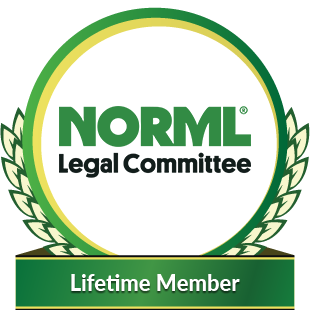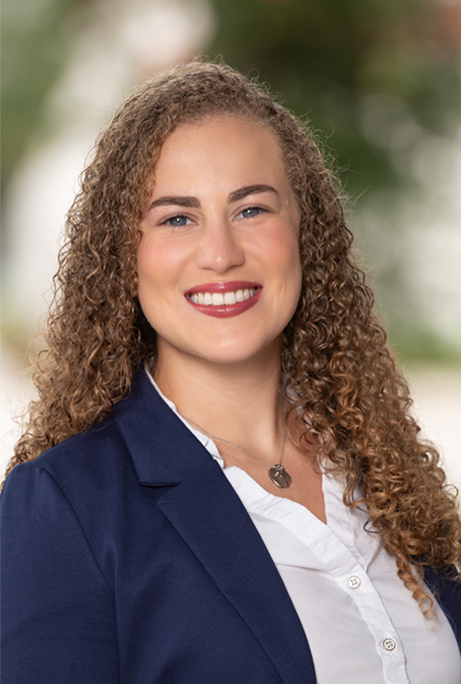DUI Arrest by the Florida Highway Patrol
Created in 1939, the Florida Highway Patrol (FHP) is the state’s enforcement authority in highway safety. FHP is authorized for 1,946 sworn positions and a total of 2,475 full-time employees. Troopers in FHP’s Patrol Operations enforce traffic laws, investigate traffic crashes, and assist stranded motorists in need of assistance.
FHP Troop C has station locations in Tampa, Brooksville, Lakeland, Land O’Lakes, Brooksville, and Pinellas Park, FL. The troopers in Troop C serve Tampa in Hillsborough County, St. Petersburg and Clearwater in Pinellas County, Brooksville in Hernando County, Lakeland in Pasco County, and the surrounding areas.
Unlike in local law enforcement agencies with specialized DUI enforcement units, troopers in the Florida Highway Patrol are more spread out and often handle their own DUI investigations. As a result, these officers have less training and tend to make the most mistakes when it comes to DUI investigations. In the past, troopers often complained that their audio and video recording equipment did not work.
Although the FHP OPS Clerk now uses a better video system to pull videos from all sides of the patrol car video systems. Keep in mind that troopers do not yet have body-worn cameras.
From our own experience, we know that FHP troopers are less likely to show up at the Bureau of Administrative Reviews (BAR) office or in court for motion hearings or trial. FHP troopers are also more likely to be dispatched after a traffic crash instead of conducting self-initiated stops for impaired drivers.
If you were arrested for DUI by a trooper with the Florida Highway Patrol, you need a criminal defense attorney who is familiar with FHP’s standard operating procedures. FHP troopers often make mistakes when conducting DUI investigations. Those mistakes might lead to an outright dismissal of the charges or at least a reduction to less serious charges.
Attorney for a DUI Arrest by FHP in Florida
If you were arrested by an officer with the Florida Highway Patrol, then contact an experienced criminal defense attorney at Sammis Law Firm. We focus on drunk and impaired driving allegations.
We are familiar with the standard operating procedures used by the Florida Highway Patrol (FHP) when conducting DUI investigations. Our attorneys can often spot issues and mistakes that might otherwise be missed.
Our main office is located in downtown Tampa, FL, in Hillsborough County. We also have a second office in New Port Richey in Pasco County, FL. Contact us to discuss the DUI charges pending against you, the typical penalties for that offense, and the best defenses that can be used to aggressively fight those charges.
Call 813-250-0500.
How to Contact FHP using Star FHP (*347)
The Florida Highway Patrol has spent a tremendous amount of resources creating and promoting the Star FHP (*347) cellular phone program that was established in April of 1994. According to FHP, the Star FHP (*347) program is one of the best ways to contact FHP directly to report an aggressive or impaired driver.
Using this program motorists who dial *FHP from their cellular phones can connect with the nearest FHP communications center to report drunk drivers, traffic crashes, stranded motorists, or other incidents occurring on Florida roadways. Since 1994, the Florida Department of Transportation has erected over 1,000 signs at strategic locations throughout Florida in order to inform motorists of the program.
Since 1994, the Florida Department of Transportation (FDOT) has put up more than 1,000 signs in Florida in encourage motorists to use the program to contact FHP. As a result, some DUI investigations involving the Florida Highway Patrol involve a call to FHP using *347. These calls can be made anonymously which sometimes lead to an allegation that the stop was conducted in violation of the Fourth Amendment of the United States Constitution.
FHP’s Drug Recognition Experts (DRE) Program
As of January 30, 2018, at least 47 troopers with the FHP are recognized as Drug Recognition Experts / Evaluators (DRE). The DRE receives specialized training to identify an extensive range of driver impairments, although the criteria to become a DRE has been watered down over the years. The FHP DRE program uses the protocols approved by the International Association of Chiefs of Police.
With more than 20% of Florida’s DREs, FHP has more DREs than any other law enforcement agency in the state. The Florida Highway Patrol uses troopers certified as a drug recognition expert / evaluator when conducting a DUI Wolfpack Operation or DUI sobriety checkpoint.
Other Training for FHP DUI Investigators
Many of the sworn law enforcement officer employed by the Florida Highway Patrol have:
- completed courses and/or training in the field of alcohol detection and impairment-related offenses;
- received training and instruction in the administration and interpretation of Standardized Field Sobriety Exercise.
The FHP troopers use the experience gained from seeing impaired persons who are under the influence of alcohol and/or chemical substances and/or controlled substances. The officers gain experience from forming opinions on impairment and having those suspicions confirmed by breath, urine, and/or blood samples.
Traffic homicide investigators are often corporals who have participated in traffic homicide investigation and traffic crash reconstruction. The officers knowledge in the area of traffic homicide investigations and traffic crash reconstruction often involves specialized training and instruction, as well as:
- in-service studies and training provided by the Institute of Police Technology and Management (IPTM);
- specialized training from attending and completing the eighty (80) hour course on At-Scene Traffic Homicide Investigation; and
- the eighty (80) hour course on Advanced Traffic Homicide Investigation.
These corporals often lead investigations involving traffic homicide and traffic crash reconstruction within the State of Florida which result in an arrest for DUI, DUI Manslaughter, or Vehicular Homicide.
Auxiliary Troopers with the Florida Highway Patrol
Under §321.24(1), FHP utilizes auxiliary troopers that serve that have the power to make an arrest when acting under the direct supervision of another sworn officer.
The requirement that auxiliary troopers act “under the direct supervision” of a law enforcement officer “is met as long as the auxiliary officer is directly accountable to a full or part-time law enforcement officer who is in the immediate vicinity of the scene and who has ultimate control of the situation.” Stanford v. State, 415 So. 2d 879, 881 (Fla. 1st DCA 1982). The degree of supervisory control necessary would be dependent upon the exigencies created by the circumstances. Id.
FHP’s Intoxilyzer 8000 Certification Equipment Simulators
According to the Florida Department of Transportation (FDOT) 2017 Highway Safety Plan, the Intoxilyzer Certification Equipment Simulators project, with project number M5X-17-06-03, has a budget of $74,000.00. With that budget, the Florida Highway Patrol (FHP) will purchase Intoxilyzer certification equipment required for the calibration and inspection process of breath analyzers.
Simulators are expected to shorten calibration time, although they will likely increase the number of challenges by criminal defense attorneys showing a lack of substantial compliance with the administrative rules. When the equipment was purchased, it was thought that the Intoxilyzer 8000 Certification Equipment might help FHP operate more efficiently. Less time spent by troopers on equipment calibrations might allow more time for patrols to remove violators from the road, leading to fewer alcohol-related crashes, injuries, and deaths.
According to the website for the Intoxilyzer, a calibration check utilizes a known dry gas standard or wet bath solution to verify the accuracy of the instrument being checked. When performing a calibration check, the known standard is introduced to the instrument while in calibration check mode. The instrument provides a reading of the known standard. If this reading is within a pre-determined acceptable range, the calibration check is within specification.
A calibration adjustment, on the other hand, utilizes calibration standards to adjust or reset the instrument into specifications. A calibration check is performed after a calibration to adjustment to verify the instrument is within the correct specification.
Free Consultation
Submit this form to request a free and confidential consultation with one of our attorneys.
Our Office Locations
Tampa Office:
Sammis Law Firm, P.A.
1005 N. Marion St.
Tampa, FL 33602
(813) 250-0200
New Port Richey Office:
Sammis Law Firm, P.A.
7509 Little Rd.
New Port Richey, FL 34654
(727) 807-6392
Clearwater Office:
Sammis Law Firm, P.A.
14010 Roosevelt Blvd. #701
Clearwater, FL 33762
(727) 210-7004
Our Attorneys












